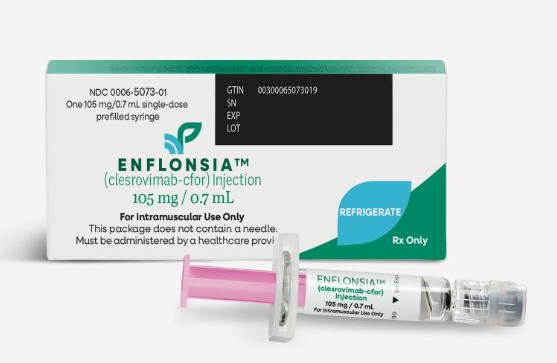Alright, let’s take a look at this awesome new study that’s all the rage with the media—the one reassuring us again that there’s positively no link between the MMR (mumps, measles, and rubella) vaccine and autism or autism spectrum disorders (ASD). A consulting firm called The Lewin Group, based in Falls Church, VA looked at the records of 95,727 children over an 11-year period.1 According to the study abstract published in The Journal of the American Medical Association (JAMA), “Participants included children continuously enrolled in the health plan from birth to at least 5 years of age during 2001-2012…” All of these kids had an older sibling, either with or without ASD.1
The epidemiological cohort study—tracking a similar group of people—found that, regardless of whether or not a child had an older sibling with ASD, there was no indication of any harmful association between receiving the MMR vaccine and ASD. No higher risk even for already higher-risk children who had a brother or sister with ASD. The study’s authors wrote, “Consistent with studies in other populations, we observed no association between MMR vaccination and increased ASD risk among privately insured children. We also found no evidence that receipt of either 1 or 2 doses of MMR vaccination was associated with an increased risk of ASD among children who had older siblings with ASD.”2
So that’s it. Yet another huge study suggests that there is no causal link between MMR and autism or any of the ASDs, and that all the skeptics and crazy anti-vaxxers are simply barking up the wrong tree. Again, we hear the common refrain: “Just how many studies will it take for people to come around to accepting proven science?
All you have to do is look at the headlines in all those reputable newspapers, news services, and magazines. There’s the CNN headline, “Another study finds no link between MMR vaccine and autism.”3 There’s the Los Angeles Times: “Study rules out link between autism and MMR vaccine even in at-risk kids.”4 There’s The Wall Street Journal: “Another Study Shows No Link Between MMR Vaccine and Autism.”5 There’s Forbes: “MMR Vaccine and Autism: Yet Again, No Link Exists — Even For Children At Risk For Autism.”6 There’s The Star-Ledger of New Jersey: “A new study says vaccines still don’t cause autism. So enough, already.”7 There’s Slate: “Slamming the Door Shut: Vaccines and Autism.”8
The list goes on and on. But you get the idea. The mainstream media has swallowed the study’s findings hook, line, and sinker, and thus it has confirmed them to the public without so much as a whisper of a question regarding the methodology of the study or the identity of The Lewin Group and any possible conflicts of interests on its part. It’s not like you have to search very hard to find out that the firm has numerous vaccine manufacturers and promoters of vaccines as its clients. Could that possibly influence the design of its study and the findings? How much weight should be given to a study conducted by a firm that is not independent? Should we simply trust The Lewin Group and have faith that the study is significant or even credible?
Furthermore, is it possible that the firm’s retrospective epidemiological cohort study using a single “administrative claims” database from a single commercial healthcare provider could be wildly skewed, or that a retrospective (backward-looking) study may not be nearly as controlled, and thus accurate, as a prospective (forward-looking) one. Think about it. It wasn’t even The Lewin Group’s own data, so the firm has no idea how accurate or representative is the information. This alone should raise lots of red flags. And while the size of the study—the number of records—is impressive, remember that size is only one factor… and it is relatively meaningless if it is not representative of the population as a whole, if it’s not balanced. That’s where having certain controls in place comes in handy.
There is also the matter of whether a cohort study is the best kind of study to use in the first place.
Cohort studies tend to be the study of choice by the Centers for Disease Control (CDC), particularly when it comes to vaccines and ASD. But you have to wonder why. If you truly wanted to determine whether vaccines contribute to the onset of ASD, then why not do a large prospective observational study? Take two separate controlled groups of children. Vaccinate one group. Don’t vaccinate the other. Follow each group of kids, and see which one develops the highest rate of ASD. It makes perfect sense. Yet, for all the talk about all the studies it has conducted on vaccines and ASD, the CDC has not performed one full-blown prospective observational study on this issue.
You could also perform biological mechanism studies to understand what happens to the cells and molecules in the body when vaccines are given to an infant or young child and whether there are common genetic variations that make some children more vulnerable to developing ASD following vaccination.
Both the observational and biological mechanism studies would be infinitely more conclusive than the epidemiological cohort studies that have become standard practice at the CDC.
But a more fundamental problem is that epidemiological studies—be they cohort or observational—aren’t the be all and end all of scientific research. First of all, it’s important to note that epidemiology is a basic science, not an applied science. It is not meant to prove anything, merely point the way for further research by fields of applied science that are more capable of solving problems and finding answers.
Michael Green, JD, Michal Freedman, JD, MPH and Leon Gordis, MD write in the National Research Council’s Reference Guide on Epidemiology:
Epidemiology is concerned with the incidence of disease in populations and does not address the question of the cause of an individual’s disease. This question, sometimes referred to as specific causation, is beyond the domain of the science of epidemiology. Epidemiology has its limits at the point where an inference is made that the relationship between an agent and a disease is causal (general causation) and where the magnitude of excess risk attributed to the agent has been determined; that is, epidemiology addresses whether an agent can cause a disease, not whether an agent did cause a specific plaintiff’s disease.9
Georgia Ede, MD concurs. She writes:
Even the most rigorous epidemiological studies suffer from a fundamental limitation. At best, they can show only association, not causation. Epidemiological data can be used to suggest hypotheses but not prove them. … Epidemiological studies, at their best, can only point out a possible connection between two things, but that is only the very first step in trying to figure out whether or not there really is a connection between them.
Same goes for Richard Farmer of the Department of Epidemiology at the University of Surrey in the United Kingdom:
Epidemiological studies provide a valuable tool for the investigation of the causes of disease. However, such studies alone are rarely able to prove cause. No study is perfect and the evaluation of results must take account of the design and execution of the study, together with the analytic methods used.10
Then, of course, there are those pesky little things that might influence the way an epidemiological study is designed, conducted, and evaluated. Helen Barrat and Maria Kirwan of the Public Health Action Support Team and the UK Department of Health write:
In theory, [epidemiological] research should be driven only by a desire to establish the truth. However, in the real world, other factors often interfere with this aspiration and can result in conflicts of interest. Research has to be funded, carried out and ultimately published, whilst researchers seek to promote their reputations and careers. Research is, therefore often carried out amidst many competing agendas.
That really does go to the heart of the debate about the credibility of epidemiological studies like that of The Lewin Group. What exactly is the agenda? Then there’s the question of why the media is so quick to accept the conclusions of these type of studies, instead of asking some hard follow-up questions.
References:
1 Jain A, Marshall 1, Buikema A, Bancroft T, Kelly JP, Newschaffer CJ. Autism Occurrence by MMR Vaccine Status Among US Children With Older Siblings With and Without Autism. JAMA 2015;313(15):1534-1540. doi:10.1001/jama.2015.3077.
2 No association found between MMR vaccine and autism, even among children at higher risk Science Daily Apr. 21, 2015.
3 Mullen J. Another study finds no link between MMR vaccine and autism. CNN Apr. 22, 2015.
4 Healy M. Study rules out link between autism and MMR vaccine even in at-risk kids. Los Angeles Times Apr. 21, 2015.
5 Whalen J. Another Study Shows No Link Between MMR Vaccine and Autism. The Wall Street Journal Apr. 21, 2015.
6 Haelle T. MMR Vaccine and Autism: Yet Again, No Link Exists — Even For Children At Risk For Autism. Forbes Apr. 21, 2015.
7 Star-Ledger Editorial Board. A new study says vaccines still don’t cause autism. So enough, already. The Star-Ledger Apr. 21, 2015.
8 Plait P. Slamming the Door Shut: Vaccines and Autism. Slate Apr. 23, 2015.
9 Green MD, Freedman DM, Gordis L. What Role Does Epidemiology Play inProving Specific Causation? Reference Guide on Epidemiology: 381-382.
10 Farmer R. The problems with some epidemiological studies. Interdisciplinary Centre for Mathematical and Computational Modelling N.d.












One Response
The media is heavily funded by pharmaceutical giants. The media will never bite the hand that feeds them.